Tong li ancient town
Tongli Ancient Town belongs to Wujiang District, Suzhou City, Jiangsu Province. It was built in Song Dynasty. There are many gardens, temples, residences and former residences of celebrities built in Ming and Qing dynasties in the town area. Fifteen small rivers in the shape of "Chuan" separated the town into seven islands, while 49 old bridges connected it into one, known as "small bridges, running water, homes".
Tongli's history can be traced back to "Songze Culture" and "Liangzhu Culture" five or six thousand years ago. As early as the Neolithic Age, there were ancestors here to slash, burn and breed. Superior natural conditions make it the richest place in Wudi, hence the original name "rich land".
Pre-Qin Dynasty has become a bazaar, which belongs to Wu County, Huiji County, and prosperous in Han and Tang Dynasties. In the early Tang Dynasty, it was renamed Tongli because its name was too luxurious. Shang belongs to the village and city, in Jiuli village. In the third year of Hou Liang Kaiping (909), Qian Si, king of Wu and Yue, demarcated the southern border of Wu County and the northern border of Jiaxing, and located Wujiang County. Tongli belonged to the Huahua Township of Wujiang County.
In the Song Dynasty, Feihua Township was officially established as Fanyu Township in Tongli. The old name "rich soil" is overlapped, and then the word is divided into two parts. The first half is "the same", and the second half is "the field" and "the soil" are added together to become "the same".
During the Yuan and Ming Dynasties, Tongli gradually moved to the south, because there were three East-West rivers in the town, forming the "Sichuan" type, also known as "Tongchuan". Tuncun became a market in the Han Dynasty, which was originally called Tunshi. It had reached a prosperous period in the early Tang Dynasty. During the reign of Song Jianyan, more than 1000 families lived here.
In Yuan and Ming Dynasty, Yi Shi was a village. In the 16th year from Yuan to Zhengzheng (1356), Zhang Shicheng's brother Zhang Shide, according to Wujiang, separated Tan Daoji to guard Dongguan of Tun City, and controlled Xiuzhou and Songjiang's two main choices. During the Jiajing period of the Ming Dynasty, hundreds of residents, more than half of whom were ironworkers, increased slightly and became self-employed. In the first year of Hongzhi in Ming Dynasty (1488), Tuncun belonged to Jiuyong Township, Wujiang County.
The administrative region was readjusted during the reign of Qianlong in the Qing Dynasty. Originally living in Tongli Town, watermen built houses on the freed River plug of several mu, which is also a bustling city, called "new land filling". The town continued to expand to the southeast. Xuantong two years (1910) to promote regional autonomy.
In the first year of the Republic of China, Tongli City Office was established.
In October 1985, Tongli Town and Township were merged to implement the system of town management.
Tongli ancient town was listed as one of the national scenic spots of Taihu Lake in 1980 and provincial cultural relics protection unit in 1982.
In 1992, it was listed as a provincial cultural relic protection town. In 2000, Tusi Garden was listed as World Cultural Heritage by UNESCO.
In 2010, it was assessed as a national 5A tourist attraction by the National Tourism Administration.
Folkways custom
Three bridges
It is a prayer activity for people to avoid disaster and pray for their children's blessings. The "Three Bridges" in the custom of "Three Bridges in Tongli" refers to three ancient stone bridges: Taiping Bridge, Jili Bridge and Changqing Bridge, standing on top of each other, less than 50 meters apart and sleeping quietly in the ancient town of Tongli. It is the treasure of Tongli Bridge in the ancient town.
In 2011, the people's government of Wujiang City (today's Wujiang District) announced the custom of walking three bridges in Tongli as the fourth batch of Wujiang City-level intangible cultural heritage list projects.
Lotus box
Lianxiang is a kind of folk self-made instrumental music which is popular in Jiangsu, Zhejiang and Shanghai. It generally chooses green bamboo with a length of one meter and an inner diameter of about two centimeters as raw materials. Artists make a perforation on the bamboo tube every 10 centimeters from the two ends. Two copper coins are embedded in the hole (the hole is slightly larger than the copper coin, which can shake the copper coin). They are fixed with screw nuts, and red, green and yellow silk ribbons are tied here. 。 Generally, three holes are punched at each end and three pairs of colorful ribbons are tied.
Beating lotus chamber is that artists hold lotus chamber and beat their hands, feet, arms, shoulders and legs with lotus chamber according to various methods with music. When dancing, the copper money in the lotus box will make a pleasant sound, and the colorful ribbons will fly up and down, which is very beautiful. At the beginning, lotus chamber artists were usually men, wearing white clothes and trousers, performing in temple fairs and major events. Later, the woman also played lotus box. Women often wear blue print shirts and blue cloth fragmented headscarves, dancing in various festive places and festivals.
Scenic spot evaluation
Chen Congzhou: Tongli is named after water. No water is different.
Mark, a senior lecturer at the University of Manchester, UK, said: "The real life of ancient town residents is perfectly integrated with historical buildings."
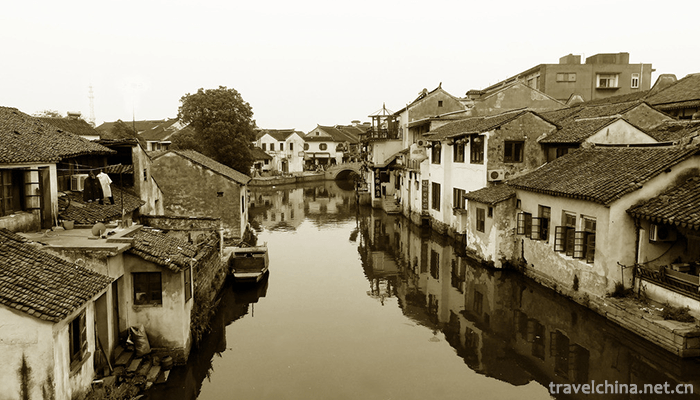
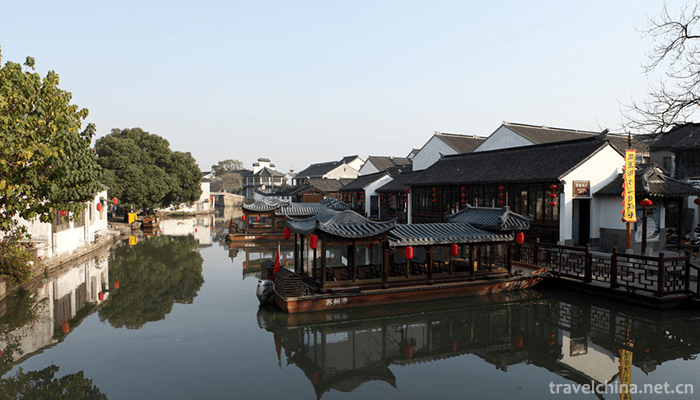

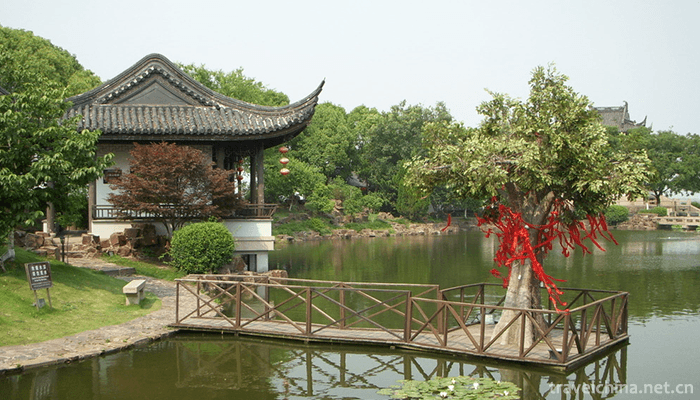
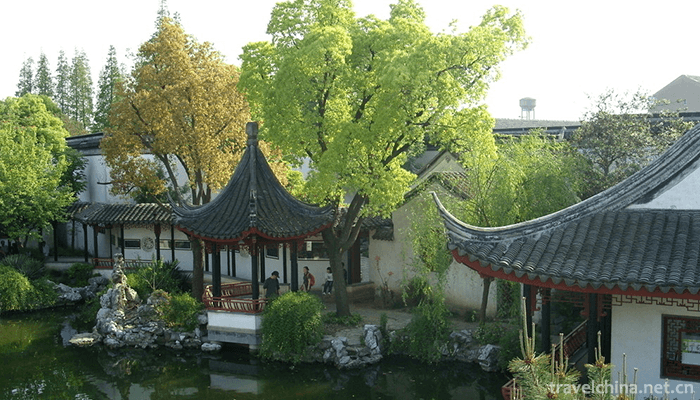
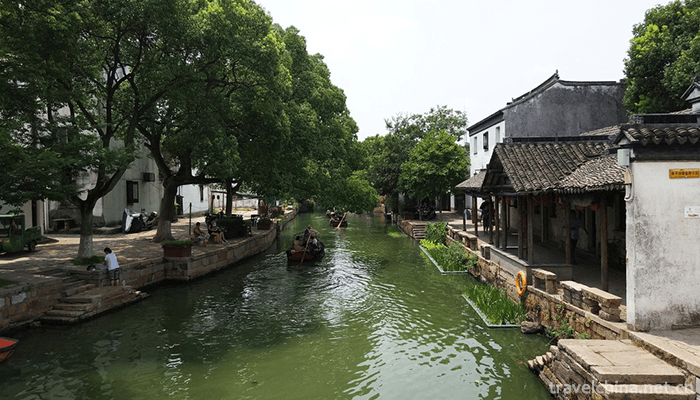
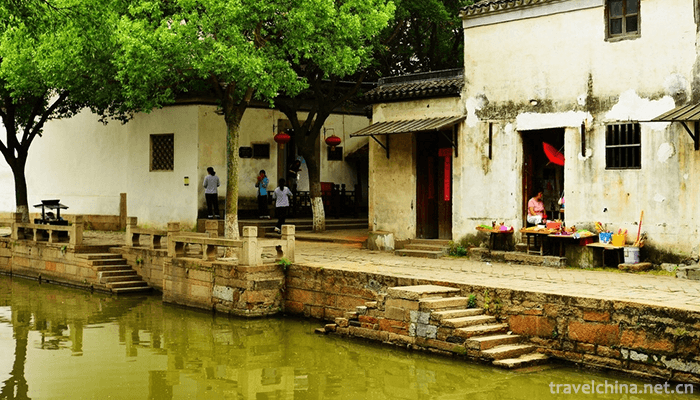
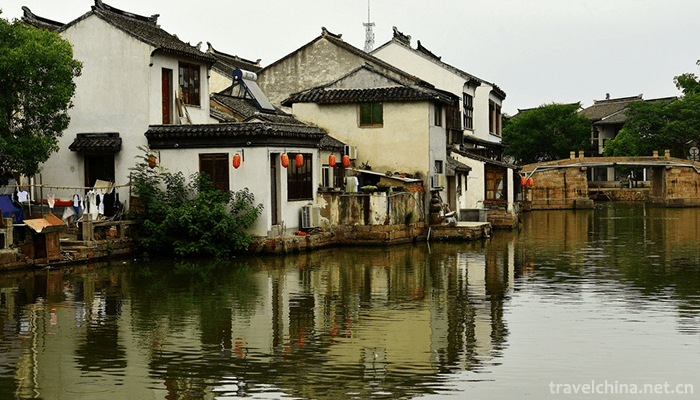
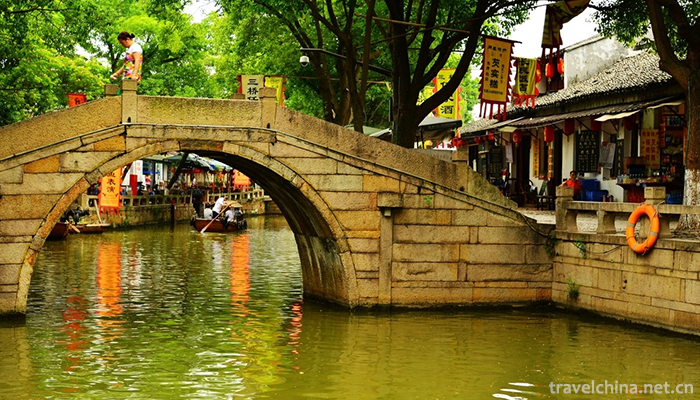

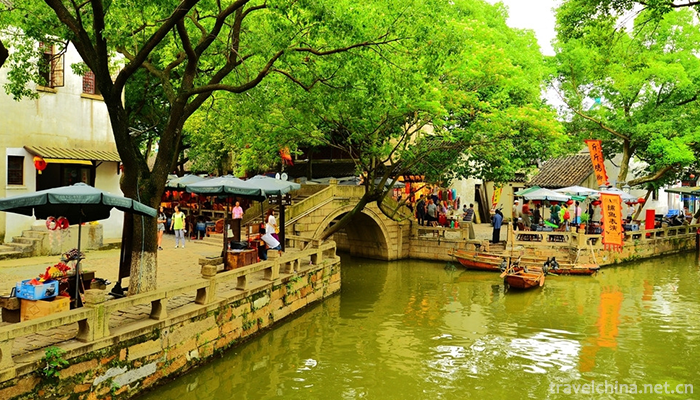
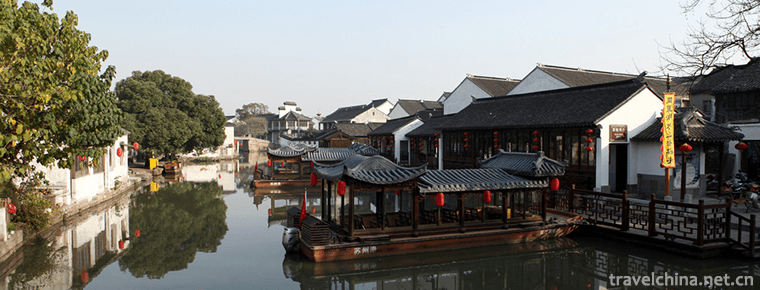
-
2.Snail rice noodles
Snail jelly powder is a kind of snack rice flour in Liuzhou City, Guangxi Zhuang Autonomous Region. It has the unique flavor of hot, cool, fresh, sour and hot. is the most famous local snack in Liuzho
Time 2018-11-05 -
3.Guangfu Ancient City Scenic AreaHandan City Hebei Province
Yongnian Guangfu City, also known as Yongnian City , Guangfu Ancient City , Ancient City , Guangfu City , Shuicheng , Taiji City , Shuicheng , is located in the southeast of Hebei Province
Time 2018-11-24 -
4.Kanas Scenic Area in Altay Area
Kanas Scenic Area is located in the middle section of Altai Mountain in Xinjiang, which is located in the border area between China and Kazakhstan, Russia and Mongolia
Time 2018-12-12 -
5.opera sung in southern tunes
Southern Opera is the earliest mature type of drama in the history of Chinese opera. From the end of Northern Song Dynasty to the beginning of Ming Dynasty (12th to 14th centuries), Southern Opera was
Time 2019-06-07 -
6.Taishan Stone Dang Custom
Taishan Stone Dangdang Custom is a relic of ancient people's worship of spiritual stones. Mountain and stone are regarded as personality by myth, which is a typical traditional folk culture that has b
Time 2019-06-18 -
7.Elbow pounding
This is a rather mysterious school, which originated from a famous family in Linqing, and is closely related to the chivalrous spirit inherent in the Chinese people; it is a fierce school, but it has
Time 2019-08-10 -
8.Beijing Wuzi University
Beijing Wuzi University is a public institution of higher learning which is characterized by logistics and circulation, based on economic disciplines, with management disciplines as its main branches,
Time 2019-09-06 -
9.Bao Shu Ya
Bao Shuya (the first 723 years or the first 716 years - the first 644 years). Si Surname, abalone His name is a famous uncle. Yingshang (now belongs to Anhui (person) the Spring and Autumn period Qi S
Time 2019-09-11 -
10.Jintang Yunding mountain scenic spot
Jintang Yunding mountain is located in the middle section of Longquan Mountain in Jintang County, Chengdu. The scenic spots include Yunding mountain, Hantan ancient ferry, Jintang small Three Gorges of Tuojiang River
Time 2020-11-05 -
12.Dazhou Education
In 2019, there are 1455 schools of all kinds in Dazhou. Among them, there are 283 primary schools, 397 ordinary middle schools, 2 ordinary colleges and universities, 33 secondary vocational education schools and 1 adult higher school. There are
Time 2020-12-20